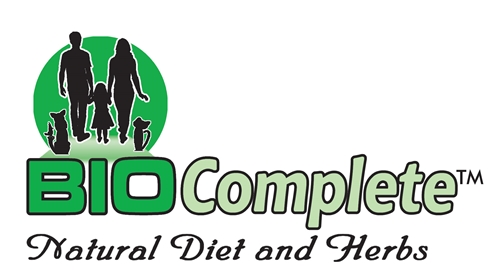It seems like everywhere I turn today, new and old products alike are splashed with banners, starbursts, and names proclaiming them “holistic” and “natural”. And if you’re familiar with us, you know that we are all for and about truly natural and holistic products.
Today’s question for you is “Is this product really “natural” or “holistic” and how can I tell?”
According to the Natural Products Association, “anyone could claim their product was ‘natural’ even if it’s 100 percent synthetic or petroleum based.” You see, for most categories of products, there is no legal definition for “natural”. In pet food, for instance, AFFCO guidelines say that companies may use the term “natural” as long as the ingredients are derived from natural sources. What does this mean? In essence, if I take a bushel of corn and extract all the major nutrients and useful parts from it, whether mechanically or chemically processed, the remaining “by-product” would still be considered “natural”. Sound like something you’d like in your diet?
And what about “holistic”? A quick Google search gave me at least 20 different definitions, the most common trend being a “total or complete approach”. In our case, this would be the approach to both nutrition and it’s affect on the whole body. In the pet food industry, AFFCO has NO guidelines or recognition of the term “holistic”. What does this mean for you? It says that anyone can take a bunch of ingredients and chemicals, mix them into a food or cookie, package them into a beautifully designed package and call them “holistic”. And on the service side, what does the term “holistic Veterinarian” really mean? Does this raise a red flag?
When you look at a “natural or holistic” pet food, let a little common sense sneak in. If it is a kibble or dry food, how natural are the actual ingredients? Is beet pulp or gluten meal naturally found in nature? Is the extrusion (baking) process of 5 hours at 450 degrees natural? How can it stay in that bag “fresh” for up to 2 years without preservatives? Since all pet foods claim to be meaty, I assume that that bag is full of meat. Why then, does the meat in my refrigerator go bad in a matter of days and the meat in the dry pet food stays fresh forever?
When we think of commercial pet foods today, with all the graphic packaging and commercials, we believe we are feeding our beloved pet a product that is really made from those fresh ingredients we see pictured.
Take a good look at that kibble you just poured in their dish. The product is probably a very hard, greasy, brown colored nugget (although some now have added colors). Does that look like anything that you would find in your kitchen or in nature?
Now take a deep breath and smell it. Does it smell like roast chicken or beef, smothered with baby carrots, new potatoes, and a tasty gravy?
When we talk about natural foods, there is nothing natural about kibble. The only animal on the planet that would take industrial waste products, develop special equipment to reprocess these wastes, add secret chemical flavoring sauces and call it a meal is man. Animals in a wild and natural setting, including man, do not eat processed food. The only animal in nature to cook any food is man.
The cooking process alone renders the food “dead”. We destroy the live enzymes we need to digest the food, most of the vitamins we need, degrade proteins to worthless compounds, and change the essential fatty acids into cancer causing agents. We then attempt to improve these destroyed foods with man-made, synthetic chemical substitutes.
Why then, do we believe that feeding any animal, our precious dogs and cats, horses, parakeets, and hamsters, an artificially processed and prepared food to be in any form natural?
In nature, dogs and cats eat meats, fowl, and fish. Horses, rabbits, and deer eat natural grass. Nature has provides a system and a product, so unique, that every piece of raw fruit, grass, meat and fish is packed full of the life giving nutrients that body needs and that provides a guidance to lead that animal to the proper foods.
Next time you pour that rancid, stale, artificial, synthetic food into your pets’ dish; ask yourself, would they feed you a meal like this if they were your caregiver?
If you want to provide truly natural products, for yourself and your pet, let’s use the “pure” definition of natural food, which would be the biologically appropriate diet, or what this animal would normally eat in nature!
As always, there are many more questions about going “natural” than there are answers.
